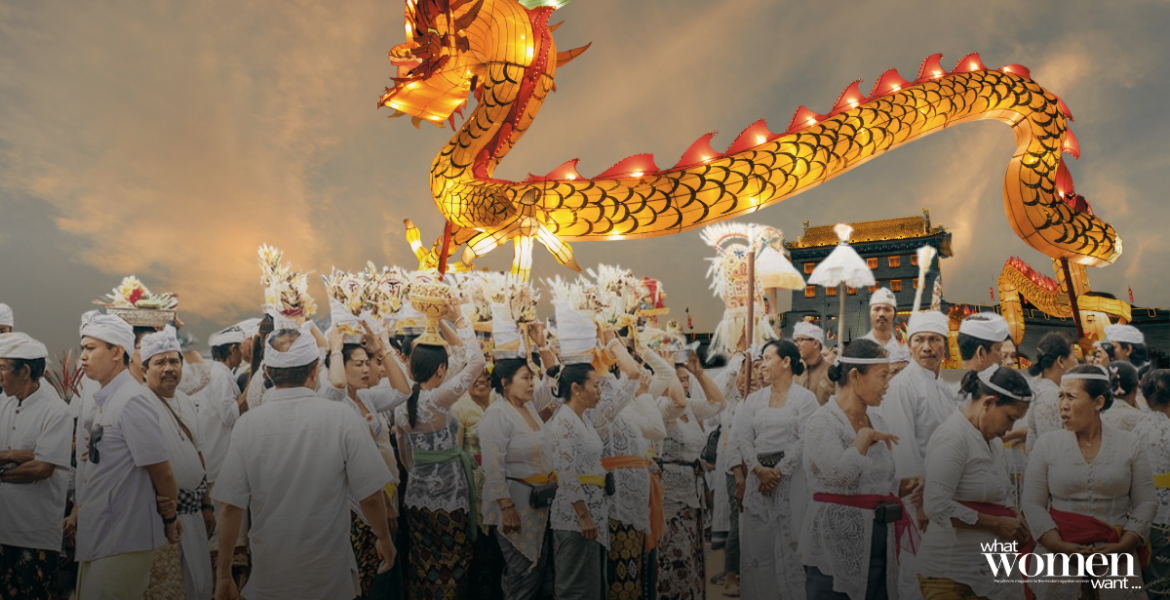The New Year marks the beginning of goals, aspirations, and opportunities. While the majority of the world rings in the New Year on January 1st, many cultures celebrate the beginning of a new year on different dates. Through these diverse festivities, we can get a glimpse into the rich and unique global culture.
Here is a list of the cultures and the dates they celebrate the New Year:
Chinese New Year – February 10, 2024

The Chinese New Year, also known as the Spring Festival, celebrations last up to 16 Days, but only the first 7 days are considered a public holiday. It can also be called the Lunar New Year, and countries such as North and South Korea and Vietnam celebrate it too. Chinese people celebrate by staying up on Chinese New Year’s Eve and setting off firecrackers at midnight. To avoid bad luck for the New Year, they avoid haircuts, using sharp objects, breaking things, and swearing. In addition, Chinese children receive red envelopes that include money. They could also be given by bosses, co-workers, and friends.
Nyepi Day – Mar 12, 2024

During the Balinese New Year or Nyepi Day, the island of Bali completely shuts down. They shut down all traffic, all shops close down, and silence takes over the Island. But on the eve of Nyepi, celebrations are held with large papier-mache giants, called Ogoh-Ogoh, which are then torched. While other cultures celebrate with music, the Balinese celebrate with a day of complete Silence. It is a day to connect with oneself and God. They also celebrate values such as humanity, love, and kindness.
Nowruz – March 20, 2024

Nowruz is a celebration that marks the beginning of the Persian New Year. The celebrations last for 13 days. The Persians view it as an opportunity to reflect on the past and set intentions for the future. It carries a lot of spiritual significance, and it represents the triumph of good over evil. The festivals take place in countries that have significant Persian cultural influence, including Kyrgyzstan, Turkey, Uzbekistan, and so many more. They usually start the celebration with spring cleaning and reunite with family. The eldest member of the family distributes sweets, coins, and presents to children. The most important tradition is the Haft-Seen table, which is the table of seven things that start with the letter S.
Enkutatash: September 11, 2024

Ethiopian New Year is also commonly known as Enkutatash, the gift of the jewels. It offers a window into the culture and cuisine of Ethiopia. Unlike the Gregorian calendar, it follows a 13-month calendar. They believe that God created the earth during September. Also, it has an equal number of daylight and nighttime hours. Despite its religious significance, it is celebrated by believers and nonbelievers. Ethiopians view it as an opportunity to embrace family and the power of community. They begin the day with traditional songs and eat a traditional chicken stew and injera meal. The celebrations continue until sunrise.
Diwali: November 1st 2024

The Hindu New Year, Diwali, or the festival of lights, is one of the most celebrated holidays in India. It celebrates the triumph of light over darkness, good over evil, and knowledge over ignorance. The celebration takes five days. On the first day, people clean their homes and on the second day, people decorate their homes with clay lamps and create design patterns. On the third day, families gather together to have a feast and light fireworks. The fourth day marks the first day of the new year when families visit each other with gifts and best wishes for the season. On the final day, brothers visit their married sisters and enjoy a meal together.
No matter when you celebrate, may this year be a year of peace and good fortune for everyone.

